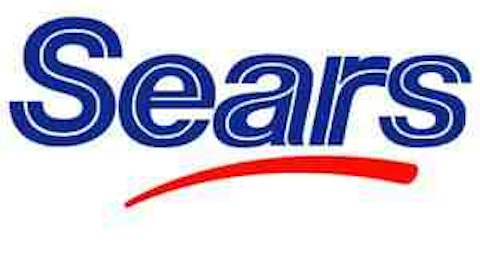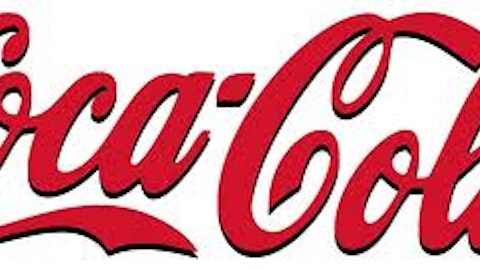The Coca-Cola Company (NYSE:KO) has been responsible for producing some of the best returns for shareholders in the market over the past 100 years, but will the company continue to do so? Could it be time to consider investing in another beverage company?
Well, Coke’s closest competitor is obviously PepsiCo, Inc. (NYSE:PEP), followed by Dr Pepper Snapple Group Inc. (NYSE:DPS). Both Dr Pepper and Pepsi have always been thought of as under-performers when compared to Coke. However, with Coke reporting slower sales in the last quarter of 2012, is it time to consider selling Coke and buying in to one these competitors?
Overview
The Coca-Cola Company (NYSE:KO)
- 3500 products world wide
- 15 brands worth more than $1 billion
- 200+ countries
- 270 bottling plants
- $48 billion revenue 2012
- Coca-Cola is the third biggest brand by value in the world – measured by net margins, average revenue per customer, advertising spend, brand affection and loyalty.
PepsiCo, Inc. (NYSE:PEP)
- 200+ countries
- 22 brands with revenue of more than $1B
- 360 products spread across five main brands
- $65 billion revenue in 2012
- Ranked 38 in the top 500 Global brands for 2012
Dr Pepper Snapple Group Inc. (NYSE:DPS)
- Operations limited to north America and the Caribbean
- More than 50 brands on offer
- $6 billion revenue in 2012
So, a quick overview highlights the size and strengths of each company. Coke is the biggest by exposure, although, as I will show below, Pepsi’s larger range of products produces a higher revenue than Coke’s. Dr Pepper is by far the smallest company; in fact, Dr Pepper’s revenues are only 10% of Pepsi’s.
Revenue
| PepsiCo | Coca-Cola | Dr Pepper Snapple | ||||
| $US Millions | 2011 | 2012 | 2011 | 2012 | 2011 | 2012 |
| Revenue | 66,504 | 65,500 | 46,766 | 48,000 | 5,903 | 6,000 |
| Growth | 15.00% | -1.51% | 33.10% | 2.64% | 4.70% | 1.64% |
| Gross profit | 37,505 | 34,080 | 28,600 | 28,964 | 3,535 | 3,370 |
| Margin | 56.40% | 52.03% | 65.30% | 60.34% | 59.90% | 56.17% |
Pepsi has the largest revenue. That said, Coke has the best gross profit margin of 60% in 2012 compared to Pepsi’s 52%.
Dr Pepper has the smallest revenue in the group, but the company does have the second strongest gross margins. Gross margins were 56% in 2012, down from 59% in 2011 – still higher than Pepsi’s.
If revenue growth is taken into account, Dr Pepper has achieved the most steady revenue growth. Pepsi and Coke had high double-digit growth rates in 2011, but growth fell to more believable numbers in 2012.
So far, Coke is the biggest company, while Pepsi has the largest revenue, and despite its size Dr Pepper is highly efficient.
The Bottom Line
| Pepsi Co | Coca-Cola | Dr Pepper Snapple | ||||
| $US Millions | 2011 | 2012 | 2011 | 2012 | 2011 | 2012 |
| Pre-tax profit | 8,834 | 8,300 | 10,627 | 11,810 | 925 | 978 |
| Margin | 13.30% | 12.67% | 22.70% | 24.60% | 15.70% | 16.30% |
| Net profit | 6,462 | 6,180 | 8,634 | 9,000 | 606 | 629 |
| Margin | 9.70% | 9.44% | 18.50% | 18.75% | 10.30% | 10.48% |
A company’s bottom line is very important, as it can be an indicator of how much cash the company will be able to return to shareholders. Despite Pepsi’s larger revenues, the company is not able to transform this into profits. The company has the smallest net profit margin in the group; Pepsi only receives 9.4 cents for every $1 in revenue.
In comparison, Coke has a net margin of nearly 19%; more than double that of Pepsi. Dr Pepper is the middle again; the company produces a net margin of just over 10%.

Presented in graph form, the difference in margins is staggering. Coke is obviously the most efficient company, and is almost twice as efficient as Pepsi.
So, how effective are these companies at translating profit into shareholder returns?





